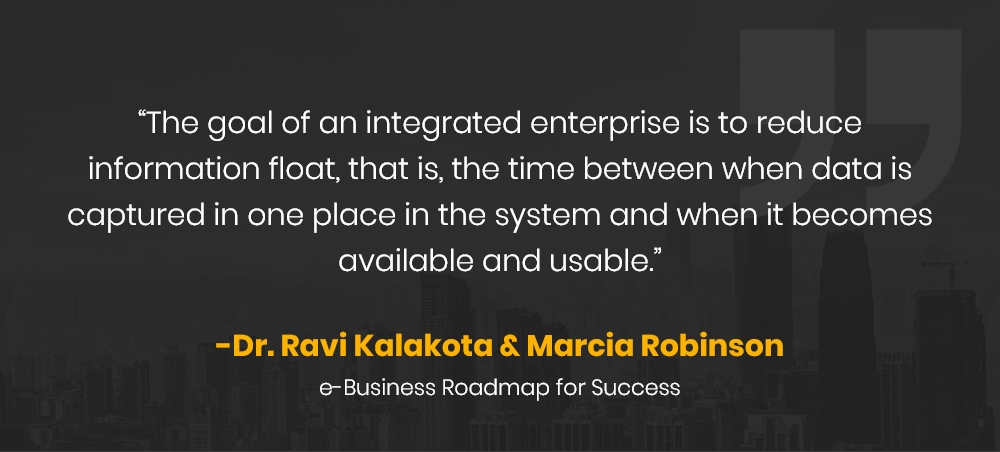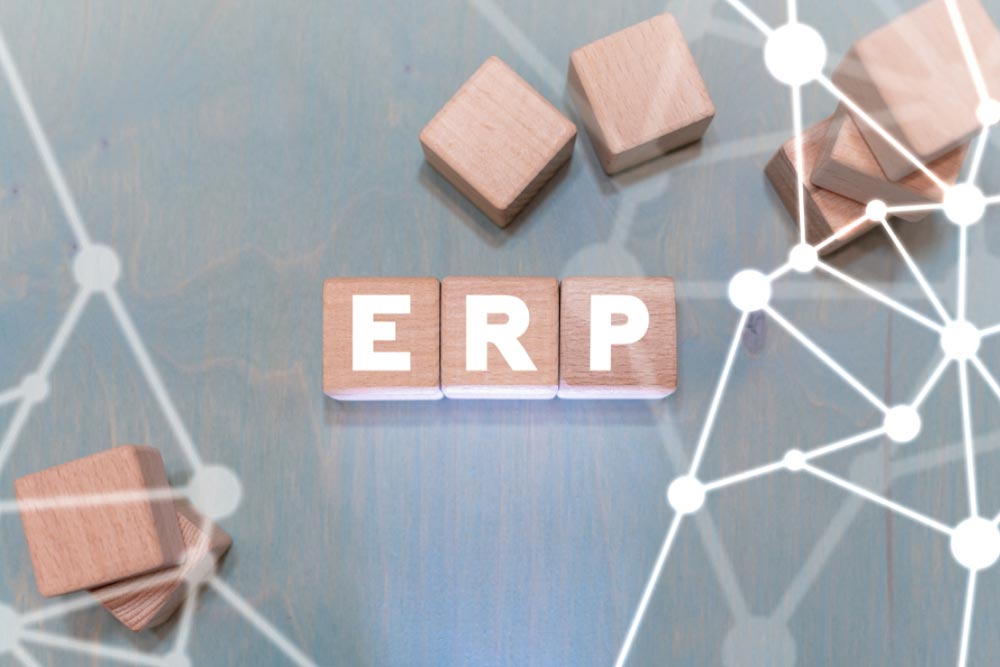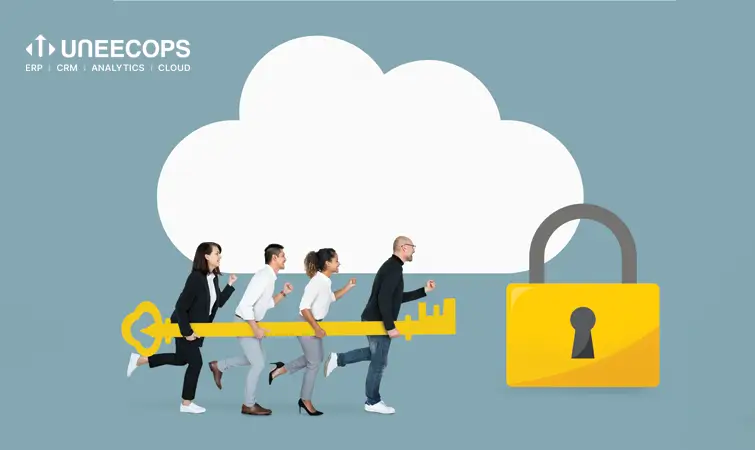Enterprise Resource Planning software holds the highest-ranking and the most powerful position among the data management solutions available in the market. Certainly, because of the core features of ERP systems, to not just centralize the data platform but integrate the entire organizational infrastructure as a whole is what makes it an ideal business automation solution. Today, the features of ERP systems cover much more.
Today’s modern-age and advanced features of ERP systems allow them to unify and automate core business processes while regulating inventory control, optimizing purchasing practices and overall project costs, managing sales processes and customer lifecycle, and providing a trove of data insights from multiple financial and accounting sources.
However, with various ERP systems that come with varied enterprise resource planning features, each seemingly designed and tailored to cater to a specific industry, selecting the right ERP software solution can be a daunting task. But don’t worry; we won’t let you get lost in the sea of bells and whistles. Here’s the list of important must-have features of ERP, essential for the seamless functioning of the processes in your organization.
Top Features of ERP
1: Integration Features of ERP
Among the foremost ERP software features is integration. Discrete information systems create confusion among employees leading to missed opportunities and cross-purpose functions. Therefore, the primary and indeed the most significant feature to look for in an ERP is a centralized view on essential business operations like finances, inventory, sales, purchase, and CRM. This data can thus be shared across all the users to render them concrete information in real-time to make insightful decisions.
Also, the right features of ERP system do not just integrate the information but provide the users with comprehensive insights on all departments in the form of intelligent data reports. These reports then help the users to create strategic action plans and capitalize on new market opportunities.

2: Flexibility and Scalability ERP Software Features
The features of ERP software include it being flexible enough to be adaptable to emerging business requirements. Flexible solutions possess a constant scope of improvement in their functionalities and ultimately, the evolution in the functioning of the organization as a whole. Also, in case of changes in the organization or its requirements, the solution need not be replaced but modified.
With flexibility, comes scalability. While you can have a fair idea of the future of your business, there would always remain some unknowns as well. A perfect ERP solution will not just understand your business requirements and your future expectations, but will also grow together with your business to conquer the objectives.
3: Remote and Mobile Accessibility Features of ERP System
Among all the features of ERP software, this one is the most sought!
ERP systems that understand the growing need for data in hand anytime anywhere are only successful in this modern age. Cloud-based ERP solutions not just support the remote working culture but are also less expensive as compared to on-premise deployment and IT and maintenance costs. The users are able to access and share information from remote locations or can make mission-critical decisions anytime needed.
In line with the same, the fact that we all are more connected to our mobile screens as compared to laptops/desktops can’t be forgotten. Most of the c-level executives prefer looking up to the information on their mobiles to save time and to take actions with speed. hus, with advanced features of ERP software, the system should provide mobile access to its database and processes. With such functionality by side, the organization can ensure that the employees are always up-to-date with the current and business-related dynamic information.
4: Compliance with Industry Regulations ERP Software Features
Every industry has its set of rules and regulations to maintain a standard in its product delivery. Similarly, there are some finance-related standards as well specific to each country like GST, GST-returns, and other tax-related requirements in India.
In practice, it is difficult to stay updated with the changing regulations and industry standards. But, advanced features of an ERP system, compliance is not an issue anymore. The ERP can handle and manage the tax-related requirements from the very beginning with each transaction that occurs via e-way billing, e-invoicing, TDS, etc. So, you don’t have to waste time and effort while filing for the tax at the end of the financial year.
5: Implementation and User Adoption Features of ERP
In any business, and especially in the case of startups and small businesses where one employee wears multiple hats and there are ample things to work upon simultaneously, investing days and months in installing a new ERP system in place and then understanding the complex features of ERP software is quite daunting.
Thus, the ideal enterprise resource planning features include easy to use for users so that employees can get acquainted with the flows easily to make the most of the company’s data.

Some modern features of ERP:
Cloud-Based Accessibility:
Modern features of ERP system offer cloud-based accessibility, allowing users to access critical business data and functions from anywhere with an internet connection. This feature enhances flexibility, collaboration, and the ability to make real-time decisions, which are crucial in today’s fast-paced business environment.
Advanced Analytics and Reporting:
Business intelligence and analytics have become integral to informed decision-making. A robust ERP system should include advanced analytics and reporting tools that provide actionable insights into your business performance. This enables users to identify trends, anticipate challenges, and capitalize on opportunities.
User-Friendly Interface and Customization:
A user-friendly interface is crucial for user adoption and productivity. Modern ERP systems should prioritize a clean, intuitive design that facilitates ease of use. Additionally, customization options are essential to tailor the ERP to specific business needs, ensuring that the system aligns perfectly with your processes and workflows.
To Sum Up the Features of ERP
Apart from the powerful data management and business automation solution, an ERP is a huge responsibility on the organization as well. Especially, if you are a small business, you need to be extra careful while selecting the right software with suitable enterprise resource planning features and functions. The ERP software, while providing data-driven insights, data management, and analysis all within an integrated framework must also be compliant, easily accessible to users, and should grow as the company grows.
Also, cost being the major concern for small businesses often holds them back from installing advanced ERP systems. Thus, the ideal ERP software features must include cost-effectiveness to cater to small businesses.
Are you Looking for a Budget-fit, Ideal ERP Solution for your Small Business?
Get a Demo of Uneecops’ cost-effective ERP solution – SAP Business One, a scalable, flexible ERP capable of integrating your core business processes. That is a complete solution with perfect ERP features and benefits.
Uneecops being an expert at handling SAP implementations for more than two decades, now understands your specific business requirements and is capable of meeting your exact expectations.
Let’s get in touch now and understand in detail about the SAP Business One ERP Solution.







